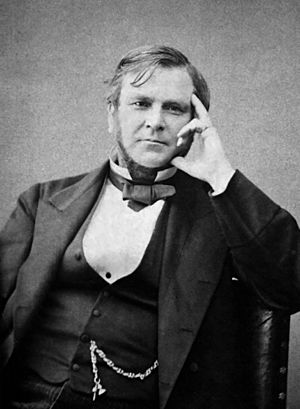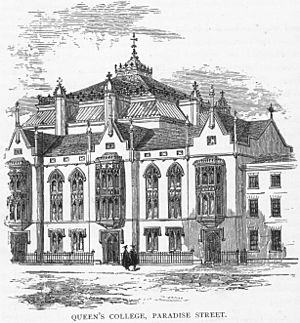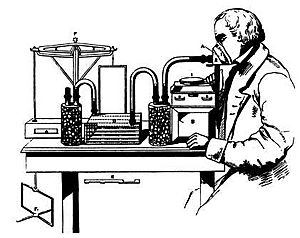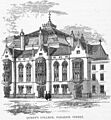Edward Smith (physician) facts for kids
Quick facts for kids
Edward Smith
|
|
|---|---|
 |
|
| Born | 1819 |
| Died | 1874 |
| Education | Queen's College, Birmingham (a predecessor college of the University of Birmingham) |
| Occupation | physician and medical writer |
Dr. Edward Smith (1819–1874) was a British doctor and medical writer. He was born in Heanor, Derbyshire. Edward Smith is remembered for his important work on how food affects the human body. He also did some of the first studies on what people with low incomes ate and what nutrients they needed.
For example, he discovered that prisoners who ate mostly carbohydrates (like bread or potatoes) didn't have enough energy for hard work. This was a key finding about how diet affects physical ability.
Life and Discoveries
Edward Smith studied at Queen's College, Birmingham, which later became part of the University of Birmingham. He earned several degrees, including in medicine and law.
In 1849, he traveled to north-east Texas. He wanted to see if it was a good place for people to move to. He later published a report about his trip.
Smith became a member of important medical groups. These included the Royal College of Surgeons of England in 1851 and the Royal College of Physicians in London in 1854. In 1860, he was chosen as a Fellow of the Royal Society. This is a very high honor for scientists.
Edward Smith was very interested in how the human body works. He spent a lot of time studying physiological chemistry, which is about the chemical processes in living things. He even invented an early type of spirometer. This device measures how much air you can breathe in and out.
He often measured his own body temperature and pulse, sometimes more than 50 times a day! He also studied how the body uses a substance called urea, making over 1,400 observations.
In 1853, Smith worked as a teacher at the Charing Cross Hospital medical school. Later, in 1861, he became a doctor at the Brompton Hospital, which specialized in treating lung diseases.
Diet and Exercise Studies
In 1862, Edward Smith wrote a book called Consumption: its Early and Remediable Stages. He had also written many papers about the human pulse and treatments for lung diseases.
However, much of his later work focused on dietetics, which is the study of diet and nutrition. He was especially interested in the diets of prisoners. He even went to Brixton prison and joined the prisoners to understand their food better.
Smith's ideas about diet were very important. He suggested that muscles get their energy not just from protein, but also from fats and carbohydrates. Two German researchers, Adolf Eugen Fick and Johannes Wislicenus, were inspired by Smith. They climbed the Swiss Alps after removing protein from their diet. They showed that Smith was right: the energy for muscles comes mainly from fats and carbohydrates, not just protein.
Edward Smith died in 1874 from pneumonia. His wife, Matilda Frearson, and their daughter, Anna Maria Smith, are buried in Dean Cemetery in Edinburgh.
Images for kids
 | John T. Biggers |
 | Thomas Blackshear |
 | Mark Bradford |
 | Beverly Buchanan |






